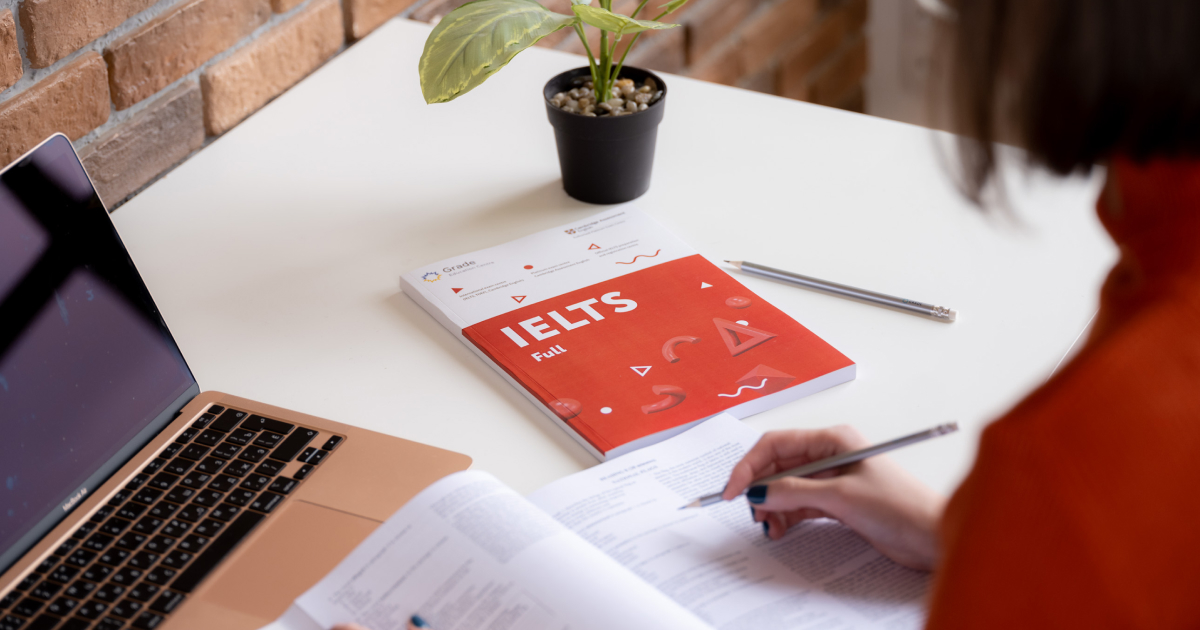
ESL Demo Lesson Tips
- Tips & Strategies

05.07.2024
Have you ever thought about how to assist students to succeed in the IELTS Reading part? This question puzzles many educators, and rightfully so!
It's important to consider that this part of the IELTS not only assesses your reading competence but also develops cognitive skills crucial for a successful career.
Diving into the realm of reading preparation, we will introduce you to unconventional strategies and useful resources that will not only assist you and your students pass the examination but also enjoy the learning process.
Before we dive into preparation strategies, it's crucial to grasp the structure and content of the reading part.
Knowing the exam format is the first step towards efficient preparation.
The reading part consists of three texts of varying lengths and complexities. Depending on whether your students are preparing for the Academic module or the General Training module, the texts will differ in content and style.
Approaches to teaching IELTS essays writing
IELTS Academic:
IELTS General Training:
The reading part includes diverse types of tasks that assess different reading skills:

Teach IELTS reading with confidence
Join our courseEach of these task types is designed for a thorough analysis of the text, assessing various aspects related to comprehension.
One of the most significant hurdles for individuals taking the IELTS exam is the restricted time available.
The reading part allows only 60 minutes to finish all tasks, making it crucial to teach students how to efficiently organise their time:
Skimming
It entails a swift perusal of the text, with the objective of identifying the primary ideas and overall structure of the material. The reader's gaze glides over headings, highlighted words, and the opening sentences of paragraphs. Through this technique, students learn to pinpoint key elements of the text, which aids in rapidly grasping the essence without delving into intricate details.
Scanning
It is a method of speed reading directed at locating specific information within the text. The reader’s eyes rapidly traverse the page until they encounter key words, numbers, or facts pertinent to their search. This technique enables students to swiftly extract the necessary information while bypassing superfluous details.

Now that we have a comprehensive grasp of the structure and material covered in the reading part, let's delve into strategies that will assist your students in preparing effectively for this critical part of the exam. Let's get into the details!
Developing a strong vocabulary is pivotal for comprehending texts and accomplishing tasks with proficiency. Start by creating word lists based on common topics in exam texts and review them regularly with your students.
Educate them on deducing the meanings of unfamiliar terms from context. Foster their adeptness in identifying context clues that facilitate comprehension as they gear up for their exams.
This approach will not solely enrich their vocabulary but also enhance their ability to comprehend and analyse complex texts with greater assurance.
It's also crucial to integrate strategies for handling synonyms and antonyms into the learning process, which enhances a deeper understanding of words and their contextual usage. Students can be encouraged to utilise various thematic dictionaries and online resources to expand their vocabulary.
Gradually building their vocabulary enables them to read and analyse texts with greater confidence, thereby elevating their academic proficiency.

IELTS Essay types and structure
Read moreIntroducing students to a diverse range of texts helps them adjust to different styles and genres they may encounter during exams.
This includes:
To prepare students for intricate academic texts, incorporate scientific articles and analytical reviews into the curriculum.
Academic texts necessitate learners to analyse and evaluate information, developing critical thinking and the capability to engage with complex concepts.
Integration of such materials into lessons also helps in navigating scientific discussions and deepening their understanding in specialized fields.
Another crucial aspect is the ability to articulate thoughts and conclusions coherently. Engaging with academic texts teaches students to construct logically consistent arguments, grounded in reliable sources and data.
Familiarise students with articles and essays covering diverse topics, assisting them in efficiently grasping the main concepts and specific details.
Additionally, these materials enable students to quickly comprehend the central ideas and nuances of the texts, thereby enhancing their abilities in information extraction.
Such skills are crucial for effective completion of exam tasks, ensuring originality and depth of understanding.
Questions to ask yourself during the lesson planning
Many questions in the IELTS Reading section require careful attention to the text's details.
This skill can be developed through the following exercises:
Detailed questions
Ask questions to learners that demand precise answers derived from the text they have read. This may involve identifying factual information, figures, dates, or specific details described in the text.
Comparative tasks
Ask students to compare two text excerpts, focusing on differences and similarities in the information provided. This assists in developing their ability to analyse information, which is often essential for answering questions like matching or selecting the best heading.
Comparative analysis is instrumental in mastering tasks that require matching information or selecting the most appropriate headings, as it sharpens their skills in detecting subtle differences and common themes.

Feedback plays a crucial role in the learning process. Regular discussions of mistakes and achievements help students gain a deeper insight into strengths and weaknesses. How can we not consider which methods are most effective for analysing the progress of your students?
Error analysis
When analysing errors, it is important not only to point out incorrect answers, but also to explain why they were given. This helps students avoid similar mistakes in the future and improve their preparation strategy.
Praising students
Encourage students for every step towards success, highlighting their achievements and efforts. Positive feedback stimulates motivation and self-confidence.
Individual consultations
One-on-one consultations allow for a deeper exploration of each student's weaknesses and offer personalised recommendations to enhance their reading skills.
These approaches not only help students prepare successfully for the Reading section of the IELTS exam but also contribute to their overall professional development.
Getting ready for the IELTS Reading section involves using a diverse array of resources. These tools will aid your students in enhancing their reading abilities, broadening their vocabulary, and becoming acquainted with the exam format.
1. Utilising flash cards
Flash cards are an effective tool for learning new words and their meanings. For instance, you can use platforms such as Quizlet to create flashcards containing unfamiliar words and distribute the link to your students to help them memorise and review vocabulary.
Assessing students’ writing
2. Scientific journals and articles
Reading scientific journals and articles can significantly improve your learners’ ability to comprehend complex texts. These materials can be found online or in distinct publications and magazines, providing valuable preparation for the reading part.
3. Exam preparation books
Books such as "Complete IELTS" or "IELTS Academic with Answers" offer real examples of previous examination questions, allowing students to practice and check their results. These resources are excellent to acquaint students with the examination format and types of tasks they might encounter.
4. Professional courses
For a more profound insight into teaching the IELTS reading part, consider enrolling in our course "How to teach IELTS Reading?" developed by professional educators. This course offers comprehensive training and insights to support you in guiding your students during exam preparation.
Moreover, explore our Grade University platform where you can discover a wide range of courses designed for CELTA, CAE/CPE, and other teaching certifications. Each course includes a complimentary Demo allowing you to explore the course features and platform functionalities. Seize the chance to enhance your teaching credentials and skills.

In conclusion, we thoroughly explored the key aspects of getting ready for the reading component of the IELTS exam.
We delved into the test's structure and layout, the importance of managing time effectively, and the different types of questions students might face. Additionally, we discussed effective methods to enhance reading skills and highlighted useful resources for more efficient preparation.
These understandings and tools will help you and your students achieve better results on the exam. Remember the importance of regular practice, reviewing mistakes, and positive feedback. With the right approach and motivation, success in IELTS Reading becomes much more attainable.
Kateryna Kuchynska
Author
Content Manager | Teacher of General English
Comments
Leave your comment